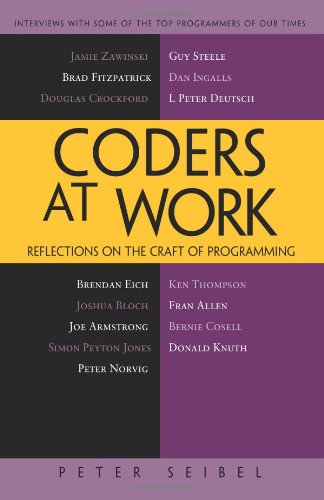Peter Norvig: From Books to Paragraphs
You look at Knuth's original Literate Programming, and he's really trying to say, "What's the best order for writing a book," assuming that someone's going to read the whole book and he wants it to be in a logical order. People don't do that anymore. They don't want to read a book, they want an index so they can say, "What's die least amount of this book that I have to read? I just want to find the three paragraphs that I need. Show me that and then I'll move on." I think that's a real change.
Notes:
People don't want books anymore, they want direct answers to their questions found in an index.
Folksonomies: new media programming media
Keywords:
original Literate Programming (0.951997 (neutral:0.000000)), Peter Norvig (0.764249 (neutral:0.000000)), Paragraphs People (0.734566 (negative:-0.270527)), direct answers (0.690490 (neutral:0.000000)), logical order (0.629113 (neutral:0.000000)), real change (0.627215 (positive:0.487642)), best order (0.611474 (positive:0.407997)), book (0.547242 (negative:-0.097403)), index (0.402286 (negative:-0.392523)), books (0.390352 (negative:-0.270527)), Knuth (0.340861 (neutral:0.000000))
Concepts:
Want (0.971438): dbpedia | freebase
Need (0.935688): dbpedia | freebase
WANT (0.745731): geo | website






